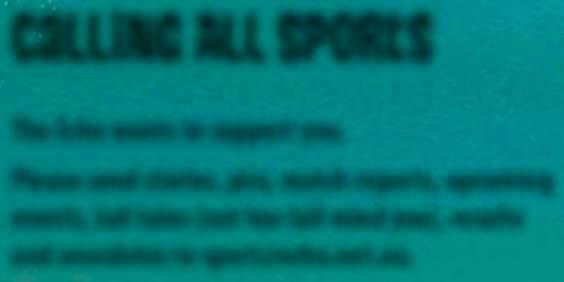
3 minute read
Mining in NSW: candidates state their position
Hans Lovejoy
With NSW Deputy Premier and minister responsible for resources, Paul Toole (Nationals), releasing a statement calling for the state to become ‘the number one investment destination for mining, exploration, and advanced manufacturing’, The Echo asked the four candidates for the March 25 election whether they support that position.
Toole’s press release last week refers to the expansion of the sector for ‘critical minerals such as copper, silver, rare earth elements, cobalt and lithium’.
Greens’ Smith
Sitting MP, Tamara Smith (Greens), told The Echo, ‘The Nationals’ vision to “make this state the number one investment destination for mining” is a frightening prospect.’
‘Right now, urgent action on climate is being delayed because the LiberalNationals Coalition and Labor take millions in donations from big coal and gas corporations, and continue to approve new mines.
‘It’s simple: if you don’t have a plan to stop opening new coal and gas mines, you don’t have a plan for the climate crisis.
‘The Coalition should support regional communities by phasing out fossil fuels, providing a transition plan to look after workers and communities, and reducing our reliance on new mineral extraction through improved and innovative recycling processes, with a focus on whole-of-life stewardship programs.
When we see the NSW Nationals jockeying for our state to become the number one destination for mining investment you have to ask yourself… do you trust them?’
Labor’s Broadley
Labor candidate, Andrew Broadley, told The Echo, ‘Australia’s exportation of lithium, as an example of rare earth minerals, is increasing already.
‘This area is mainly a policy of the federal government. I suggest that you ask [local federal Labor MP] Justine Elliot for comment, or Resources Minister, Madeleine King’.
Broadley referred to a story at www.newcastleherald.com.au, titled ‘Crucial minerals underpin volatile exports’.
Nationals’ Booyens
Nationals candidate, Josh Booyens told The Echo, ‘As our world transitions to clean energy and renewables, the demand for the rare earth elements that go into batteries and semiconductors is only going to increase.
‘We have an exciting opportunity to be ahead of the curve in supplying these minerals to the world and creating hundreds of regional jobs in the process’.
Independent Loughrey
Independent candidate, Kevin Loughrey, told The Echo, ‘Do I support mining?’
‘The short answer is, “Yes, very much!”.’
‘I am gravely concerned with Australia’s present strategic situation. It is necessary that we, once again, become industrially self-sufficient.
‘One of a number of key enablers for this to happen is that we mine every type of metal, that is essential to modern technology production, here in Australia.
‘The rare earth metals market is presently dominated by the Communist Party of China. We urgently need to become selfsufficient, not only in their extraction from the earth, but in their processing to a final, usable product.
‘Another critical need in this country is liquid fuel supply. We only hold around 24 days reserve in this country. If Australia were to be cut off, everything would grind to a halt, even the Defence Force, in around 24 days.
‘Please see: https:// kevinloughrey.com.au/Waste2Energy/Concept.html
‘That brings me to the matter of how I see it being possible for Australia to industrialise. I can deal with that later if you are interested.
‘The next question is the matter of environmental damage done by mining. I was the Superintendent of Engineering on North Stradbroke Island for Consolidated Rutile Limited.
‘I was responsible for the maintenance support of three large mines; moving around 12,000 tonnes of sand per hour. We used to take environmentalists up into the sand dunes and ask them to point out which side of the path we were on had been mined. They always got it wrong because the restored land was much healthier than the native bush.
‘Mining conducted properly can be an asset; particularly to pastoralists, where land that was formerly not useful before mining is flattened, groomed, grassed and treed such that it becomes ideal for livestock grazing or for recreation.
‘So the answer is an unequivocal, “Yes” and this should have been done many years ago. It is very important that the minerals are processed here in Australia to their end-state. To do that, we need the cheapest energy possible.
‘That brings me back to my top priority, and that is to fix the electricity generation market. The Waste to Liquid Fuel concept will not only address a critical defence vulnerability, it would provide copious quantities of liquid fuel at around 30 cents/litre wholesale.
‘This would depress the cost of motor and aviation fuels here in Australia, which would be a boon to our economy’.











